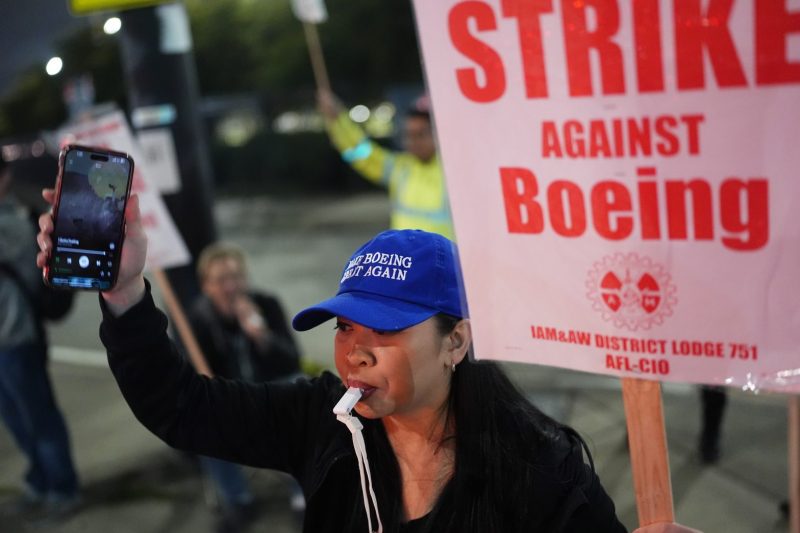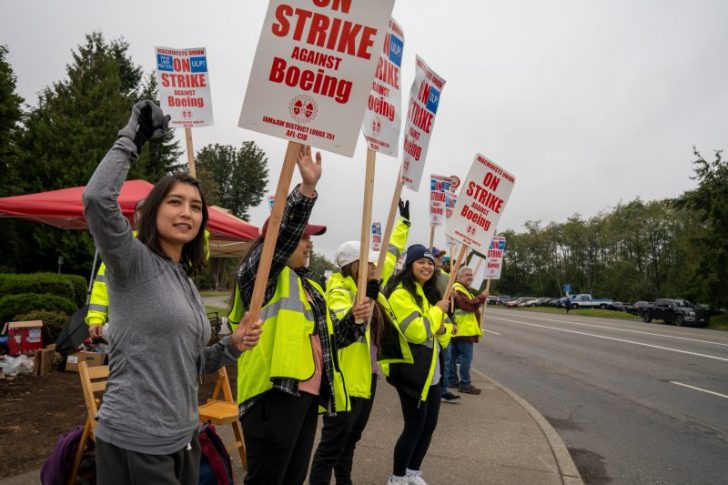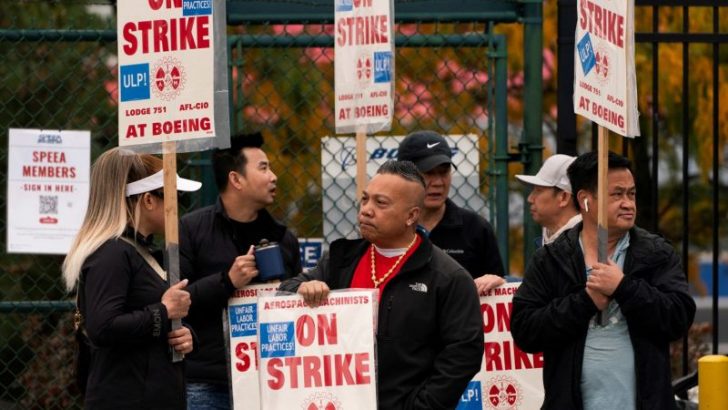
Lost Pension Plan at the Heart of Weeks-Long Boeing Strike – Report

On September 13, 2024, over 33,000 machinists employed by Boeing took a powerful stand. It marks the first strike by the union since 2008. The Boeing strike erupted as machinists voiced their discontent over key labor issues, most notably the restoration of a traditional pension plan that they feel was unjustly taken from them a decade ago.
This movement is centered in the Seattle metropolitan area and affects Boeing’s major plants in Everett and Renton. With negotiations continuing into their seventh week, the strike has highlighted a serious rift between Boeing and its workforce that shows little sign of mending soon.
Why Did the Boeing Strike Begin?
The Boeing strike took shape due to one primary point of contention: Pensions. The International Association of Machinists and Aerospace Workers (IAM), representing the striking employees, insists that Boeing reinstate the traditional pension plan the workers lost in 2014.
Back then, Boeing replaced the pension with a 401(k) retirement savings plan, a shift that has left many machinists feeling short-changed and frustrated. The union argues that Boeing pressured employees to relinquish the pension plan by threatening to relocate new aircraft production to different facilities if they didn’t comply.

NPR / For many Boein machinists, the traditional pension represented security and a guaranteed source of income upon retirement, a benefit the 401(k) plan can’t entirely match.
The union’s resolve to bring back the pension plan reflects not only a fight for retirement stability but also a demand for respect from their employer. With the strike now stretching into its seventh week, it is clear that the machinists are standing firm on this issue. This shows that they are unwilling to settle until Boeing meets their demands.
The Role of Boeing’s Management in the Ongoing Dispute
Boeing’s stance during the strike was firm, even as it faced mounting pressure from workers. The company has made several offers to address worker grievances, but its resistance to restoring the traditional pension plan has been unwavering. Boeing’s position has centered on the belief that the 401(k) retirement option aligns with industry standards and serves as a sustainable solution for both the company and its employees in the long run.
However, this perspective has not been enough to sway union members, who argue that Boeing is overlooking the commitment machinists bring to the table.
Management’s reluctance to revert to the previous pension model underscores the company’s commitment to a newer retirement framework. One that may be easier to sustain financially but doesn’t carry the same sense of security for the machinists. This division between the workforce’s expectations and Boeing’s policies has become a focal point of the dispute.
The Impact of the Boeing Strike on the Seattle Area
The Boeing strike has reverberated through the Seattle metropolitan area, affecting not just Boeing’s operations but also the broader local economy. The company’s presence in Everett and Renton is a significant economic driver, with thousands of local jobs tied to its operations.

Marca / While Boeing has managed to close the gap on some other issues, the pension debate remains a central hurdle in reaching a resolution.
With 33,000 machinists off the job, production at these facilities has slowed, placing strain on the company’s timelines and order fulfillment. This impact is being felt across the region, especially in businesses that rely on the steady flow of Boeing’s manufacturing needs.
For the communities surrounding these Boeing plants, the strike has created a heightened awareness of labor issues and job security concerns. Many Seattle residents sympathize with the machinists’ cause, recognizing the importance of stable retirement options in an increasingly uncertain economic climate.
The disruption caused by the strike has prompted many to question Boeing’s commitment to its workforce. It is pushing conversations around worker benefits and corporate responsibility to the forefront of public discussion.
More in Money
-
`
How to Market Your Tech Business for Billion-Dollar Growth in Dubai
Dubai’s business scene is exploding at a rapid pace. With a tech ecosystem valued at $43 billion in 2025 and ten...
August 15, 2025 -
`
Michelle Obama’s ‘Parenting Wisdom’ Earns Her a Next Gen Award
Michelle Obama is being recognized for what millions already admire her for: keeping it real, especially when it comes to parenting....
August 10, 2025 -
`
How to Make Good Habits Stick For Long? 5 Practical Tips
Good habits can change your life, but keeping them alive is the real challenge. Many people start strong and then slowly...
August 3, 2025 -
`
How A Family Crisis Pushed Brad Pitt to Quit Drinking
Brad Pitt hit a wall in 2016. The actor, known for his cool demeanor and A-list charm, found himself in the...
July 27, 2025 -
`
This New York-Based Startup Has Cool Ways of Quitting Cigarettes, Vaping & Zyn
Quitting cigarettes, vaping, and Zyn has always felt clinical, awkward, and kind of lame. But Jones, a New York-based startup, is...
July 18, 2025 -
`
Inside Gwen Stefani’s Life With Her “Greatest Love” Blake Shelton
Gwen Stefani kicked off Blake Shelton’s 49th birthday in the most personal way possible. On June 18, 2025, she shared a...
July 11, 2025 -
`
What Is the Science Behind Out-of-Body Experiences (OBEs)?
Out-of-body experiences, or OBEs, sound like science fiction. But they are real, at least to those who experience them. OBEs involve...
July 5, 2025 -
`
Why Will Smith Regrets Rejecting a Starring Role in “Inception”
Will Smith once passed on a role that would go on to define sci-fi cinema. In a rare moment of honesty,...
June 29, 2025 -
`
5 Things Millionaires Are Doing With Their Money in 2025
Money doesn’t sit still when you are rich. Millionaires don’t hoard it, they grow it. Every dollar has a job to...
June 21, 2025















You must be logged in to post a comment Login